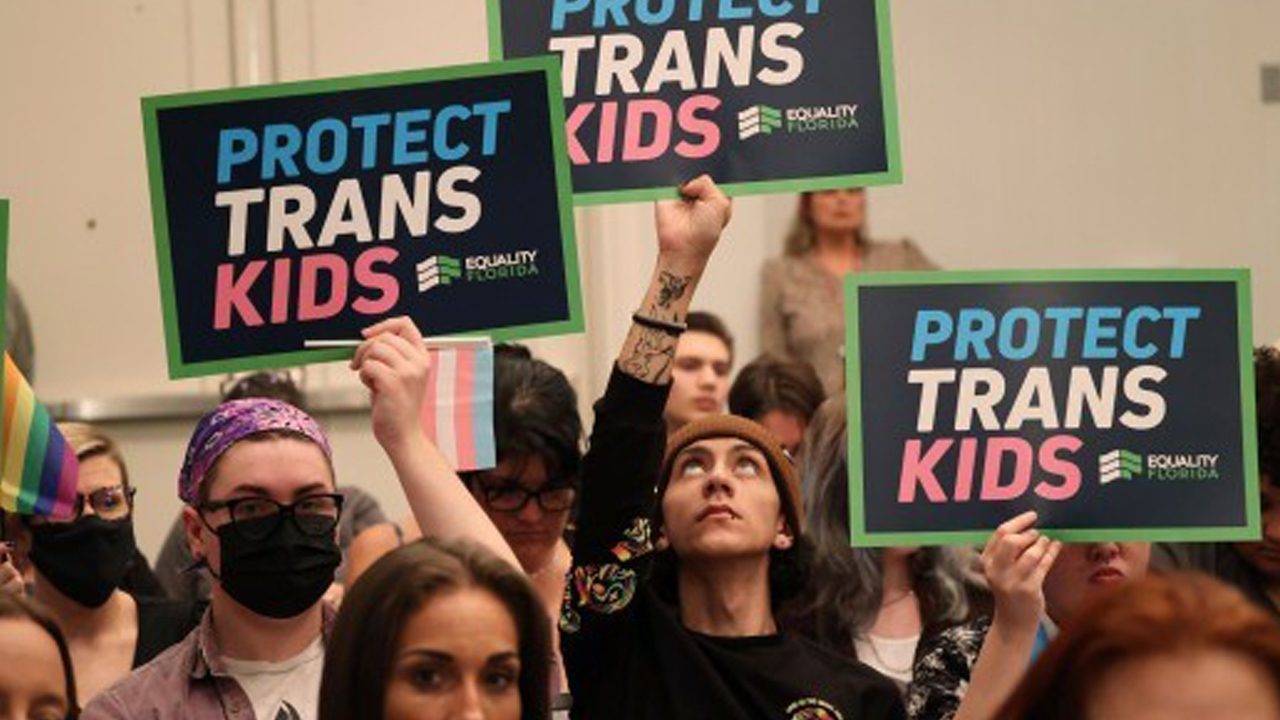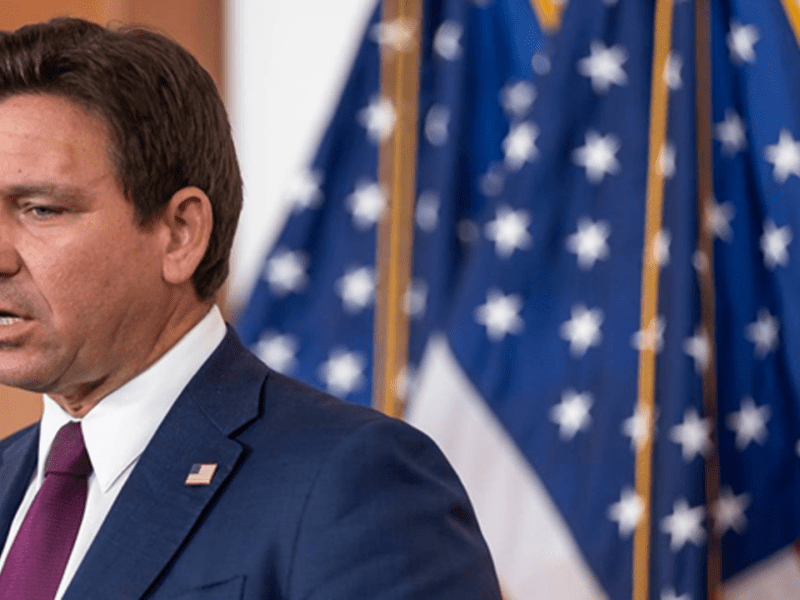
Federal court halts Florida’s transgender care ban for families who sued
South Florida SunSentinel | By Caroline Catherman | June 6, 2023
A federal court on Tuesday issued a preliminary injunction allowing three transgender youths to receive puberty blockers despite Florida Board of Medicine’s rules and a new law, SB 254, banning gender-affirming care for transgender people under 18.
“Gender identity is real,” writes U.S. District Judge Robert L. Hinkle in his ruling. “… I find that the plaintiffs’ motivation is love for their children and the desire to achieve the best possible treatment for them. This is not the State’s motivation.”
This ruling was made as part of an ongoing lawsuit brought by seven Florida parents of transgender children against Florida, arguing that the state’s ban on treatment such as puberty blockers, testosterone and estrogen violates the U.S. Constitution’s 14th Amendment’s Equal Protection Clause. Three of the seven parents successfully requested and received this preliminary injunction.
In his 44-page ruling, Hinkle indicated that these parents will likely succeed in their claims that SB 254 and the Boards of Medicine rules banning treatment for transgender youth are unconstitutional.
Jennifer L. Levi, director of the Transgender Rights Project at GLBTQ Legal Advocates & Defenders, in an emailed statement to the Orlando Sentinel emphasized this part of the ruling.
“It’s important not to miss what the Court also said which is that the law and rules are likely to fail constitutional scrutiny once the Court has the chance to rule on the merits. That is a hugely important part of the ruling which sends a strong signal to medical providers and families about the likely demise of this ban,” Levi wrote.
Though these treatments come with potential risk, they have decades of robust clinical evidence indicating their safety, and have been used for other medical conditions such as treating children who begin puberty prematurely, Hinkle writes.
Denying transgender individuals access to this treatment but allowing access for children who need it for other reasons is “differential treatment based on sex and transgender status,” Hinkle writes.
These three adolescents, whose identity along with their parents’ has been kept anonymous, have begun or are about to begin puberty. Each has lived as a gender different than their biological sex for years and risks being outed to peers as transgender if they begin puberty. Their doctors all deem puberty blockers medically necessary, and to not give them risks irreversible harm, the ruling states.
Underneath these bans, Hinkle argues, is the implied accusation that gender identity is not valid. Hinkle pointed out that attorneys for the medical defendants named in this case have conceded gender identity is real, as has the only defense expert who has treated a significant number of transgender patients.
But state officials such as Surgeon General Joseph Ladapo have called the widespread approval of gender-affirming treatments a result of “political ideology.”
“Any proponent of the challenged statute and rules should put up or shut up: do you acknowledge that there are individuals with actual gender identities opposite their natal sex, or do you not? Dog whistles ought not be tolerated,” Hinkle writes.
Florida’s law, signed by Gov. Ron DeSantis in May, includes other provisions that are not addressed by this injunction.
The law requires transgender health care to be overseen by a physician, and for patients to see that doctor in person.
Adult transgender individuals in the state who were seeing their doctor via telehealth or receiving care from a nurse practitioner told the Associated Press that these provisions have cut off their access to care, too, even though much of the focus has been on the law’s impact on children.
The law also bans gender-affirming surgeries for transgender minors, such as breast implants for transgender females or a mastectomy to remove a transgender male’s breasts.
It allows non-transgender children to receive these surgeries for medical reasons such as having “external biological sex characteristics that are unresolvably ambiguous.”
These bans contradict widely accepted and long-standing guidance published by the American Academy of Pediatrics; the Endocrine Society, a global medical organization; and the World Professional Association for Transgender Health, an international group focused on gender dysphoria treatment.
A joint news release from the Southern Legal Counsel, GLBTQ Legal Advocates & Defenders, the National Center for Lesbian Rights, and the Human Rights Campaign, which are representing the plaintiffs in this case, says the challenge to the Boards of Medicine and SB 254 health care bans will likely proceed quickly to trial.
The Florida Department of Health said it does not comment on pending litigation when contacted for comment.
This May ban is an escalation of years of moves by DeSantis and others in the Republican party against transgender individuals.
He signed a transgender sports ban in 2021, then ramped up his rhetoric in the year before he filed to run for president.
The battle over medical care for minors took full force in April 2022, when the Florida Department of Health, under Ladapo’s direction, released guidance against social and medical gender transition. The state’s Medicaid program a few months later stopped paying for gender-affirming care, then the Florida Board of Medicine issued recommendations that were made permanent by DeSantis’ law.
“This will permanently outlaw the mutilation of minors,” DeSantis said at a bill-signing ceremony in Tampa.
It is extremely rare for surgery to be done on minors, and only in extraordinary circumstances.
An analysis of insurance claims by Reuters and health technology company Komodo Health found that of the more than 87,000 youth 13 to 17 diagnosed with gender dysphoria in the U.S. from 2019 to 2021, at least 56 had genital surgeries and at least 776 had mastectomies.





